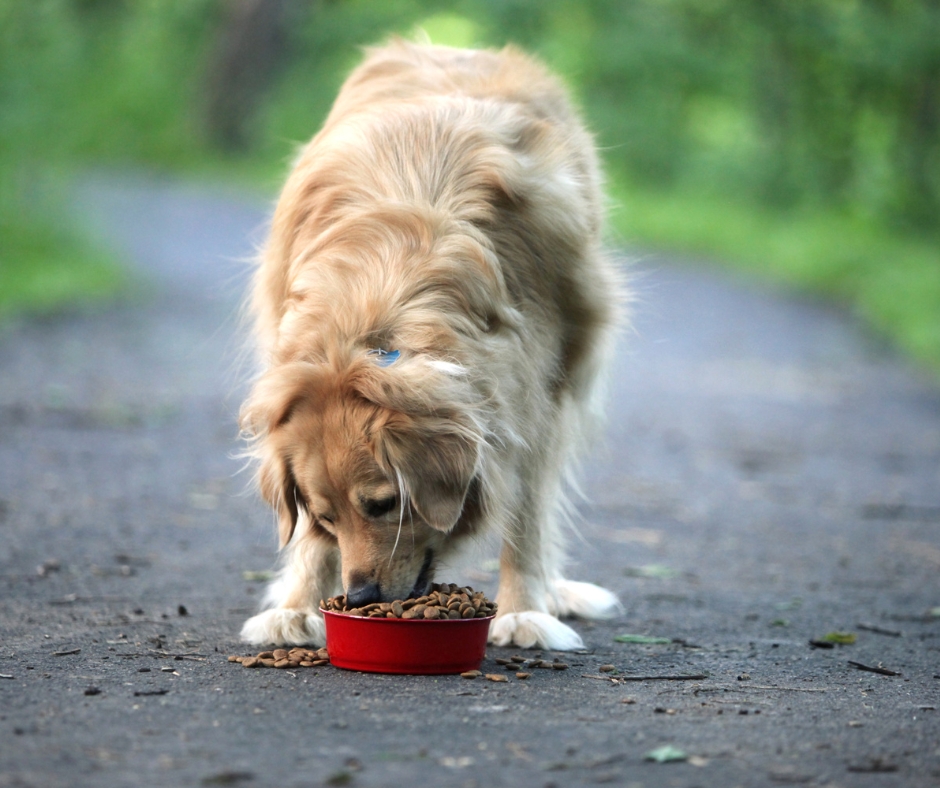Taking care of a dog with kidney problems might be difficult. Vet-approved homemade dog food recipes are essential for managing kidney disease. Control of this disorder depends critically on diet.
Vet-approved homemade dog food recipes for kidney disease are available. Vets often recommend specific diets to aid in the management of kidney disease. One of the excellent choices is homemade dog food recipes. They guarantee your dog gets the greatest nutrition and let you select ingredients. Still, these dishes must be vet-authorized. The correct mix of nutrients can help control renal disease and enhance the quality of life of your dog.
We will explore some vet-approved homemade dog food recipes for kidney disease. These dishes aim to support kidney function and maintain your dog’s health. Let’s explore the realm of homemade, healthy food for your cherished pet.

Introduction To Kidney-friendly Dog Food
Dogs suffering from kidney illness call for particular attention. One crucial factor is their nutrition. Giving your dog kidney-friendly food will help to increase their quality of life. Made-from-scratch recipes let you regulate the components. This guarantees your dog absorbs the nutrients required.
Importance Of Specialized Diets
Dogs with renal illness need especially specialized meals. They slow down the course of the disorder and help control it. Low in protein, phosphorous, and salt, these diets are This lessens the renal load for your dog. It also lessens additional harm.
- Low Protein: Lessens renal work load.
- Low phosphorus helps to stop more kidney injury.
- Low sodium helps regulate blood pressure.
See your veterinarian before changing things. They can help you find the proper nutritional balance. One may make a big impact with a well-planned diet.
Overview Of Kidney Disease In Dogs
Many dogs suffer from kidney illness, often known as renal disease. Apart from preserving fluid balance, the kidneys filter waste from the blood. Waste builds in the body when kidneys fail. This causes several medical problems.
Common symptoms include:
- Increased thirst
- Frequent urination
- Weight loss
- Loss of appetite
- Lethargy
See your vet if you see these symptoms. Early diagnosis can assist in better controlling the illness. Kidney disease exists in several phases. The degree determines the diet and treatment approach.
Here’s a simple table showing stages of kidney disease:
- The patient has mild kidney damage and no symptoms.
- There are mild symptoms that can be detected through tests.
- Moderate symptoms require a special diet.
- Severe symptoms; need for intensive care.
Knowing the stage helps one design a sensible diet. A proper diet helps your dog live better and slows down the illness.

Key Nutrients For Kidney Health
Feeding a dog with renal illness calls for particular dietary awareness. These nutrients enhance general health and renal performance. We review the most crucial nutrients for dog kidney health below. This guides you in developing wholesome, vet-approved homemade dog food recipes for kidney disease.
Low-phosphorus Ingredients
One mineral that might tax your dog’s kidneys is phosphorus. Maintaining low phosphate levels is really vital. These are some low-phosphorus components:
- Rice: A beneficial low-phosphorus carbohydrate source.
- White chicken flesh contains less phosphorus, so use it.
- Egg whites are low in phosphorus and high in protein.
- One vegetable that is low in phosphorus is cauliflower.
- Pumpkin: low in phosphorus and simple to digest.
Vital Minerals and Vitamins
Your dog’s health is dependent on vitamins and minerals. particularly for those with renal illness. These are some of the essential vitamins and minerals:
Vitamin B
- Benefits: It boosts energy and supports metabolism.
- Sources: We eat eggs, meat, and fish.
Vitamin C
- Benefits: It supports immune function.
- Sources: The meal included broccoli, spinach, and apples.
Iron
- Benefits: It prevents anemia and boosts energy.
- Sources: The meal consisted of beef, chicken liver, and spinach.
Zinc
- Benefits: This product supports skin and coat health.
- Sources: The menu includes turkey, lamb, and whole grains.
Including these minerals in homemade dog food helps control renal illness. See your veterinarian always before changing your diet.
Protein Sources For Dogs With Kidney Disease
Dogs suffering from renal illness require premium proteins. These proteins should break down readily. A few decent choices are:
Choosing The Right Proteins
Dogs with kidney disease need high-quality proteins. These proteins should be simple to digest. Some beneficial options include:
- Eggs: Eggs are a fantastic source of protein. They have little phosphorus and are simple to digest.
- Chicken: An additional excellent option is chicken breast. It has a low phosphorus and fat content.
- Turkey: Turkey is high in protein and lean. Its phosphorus levels are likewise low.
- Fish: Salmon is one excellent fish. They provide omega-3 fatty acids, which are beneficial.
Steer clear of organs and red meats. They can be difficult on the kidneys and are heavy in phosphorous.
Balancing Protein Intake
The key is to balance protein consumption. Too much protein strains the kidneys. Muscle loss may follow from too little protein. See a veterinarian to establish the ideal balance.
A balanced protein diet looks like this:
- Eggs: 1 egg at 2 times a week
- Eat 100 grams of chicken breast three times a week.
- Turkey: Consume 100 grams twice a week.
- Salmon: 50 gm at 1 time a week.
Track your dog’s health constantly. Modify the diet as necessary. Visit your veterinarian often. This guarantees your dog receives the finest treatment.
Homemade Recipe Guidelines
Making vet-approved homemade dog food recipes for kidney disease for a pet with renal illness calls for particular attention. Check the meals to ensure they are safe and healthy. You may create foods that are attractive and well-balanced by adhering to the principles. Let’s begin with the basic guidelines for managing amounts and preserving nutrients in food through cooking methods.
Strategies for Portion Control
- Accurate ingredient measurements are important. Estimate using a food scale.
- For customized portion quantities, see your veterinarian.
- Stagger meals into little, frequent portions. This helps breakdown food.
- Check your dog’s weight often. Change amounts as required.
- Steer clear of too generous feeding. It can aggravate problems with kidneys.
Cooking Techniques To Maximize Nutrients
Cooking techniques affect nutritional retention. Choose techniques that preserve nutrition.
- Steam preserves minerals and vitamins. Employ a steaming basket.
- Boiling calls for very little water. Steer clear of overcooking.
- Cooking at low temperatures slow-heats the food. protects nutrients.
- Baking: Turn down the heat. Don’t burn the food.
- Raw feeding: See your veterinarian. Check hygiene and safety.
Remember that the right cooking method may greatly influence things. It preserves the food’s nutritional value.
- Steaming: preserves vitamins and minerals.
- Boiling: Quick and easy.
- Slow cooking maintains nutrient integrity.
- Baking: uses low heat.
- Raw Feeding: Consult your vet.
Following these guidelines will enable you to provide your dog with delicious and nutritious food. Their wellness and happiness depend on it.
Sample Recipes For Kidney Health
Getting your dog the correct diet can be difficult, particularly if they have renal illness. Making your own dog food lets you manage the components, therefore guaranteeing their safety and benefit for the renal condition of your pet. Here are some examples of vet-approved homemade dog food recipes that support renal function in cases of kidney disease.
Dish with Chicken and Rice Delight
Renally challenged dogs will find this meal perfect as it is simple and easy for digestion.
- Products:
- 1 cup shredded cooked chicken breast.
- 1 cup cooked white rice.
- 1/2 cup of sliced steaming carrots
- 1/4 cup steaming green beans
- 1 tablespoons of fish oil
Direction:
- Cook the chicken breast completely, then shred it into little bits.
- In a large bowl, toss the cooked rice, green beans, and carrots.
- Stir the shredded chicken well.
- Drizzle with fish oil, then whisk to ensure uniform coverage of everything.
- Allow the mixture to chill before feeding it to your dog.
Feast of beef and sweet potatoes
Nutrients thought to improve kidney function abound in this substantial supper.
- Products:
- 1 cup of well-cooked lean ground beef
- 1 cup cooked and mashed sweet potatoes
- 1/2 cup of steaming peas
- 1/4 of mashed blueberries.
- 1 olive oil tablespoon
Direction:
- In a skillet, brown the ground meat; drain extra grease.
- Combine the blueberries, mashed sweet potatoes, and peas in a big bowl.
- Add the ground beef cooked and well mix.
- Pour the olive oil, then swirl to mix all the components.
- Before giving your dog the food, let it chill.
These foods taste delicious and appropriate for your dog’s renal condition as well. See your veterinarian always before introducing new foods for your pet into their diet.
Using Fruits and Vegetables
Including fruits and vegetables in your dog’s diet might benefit, especially for dogs with renal disease. These foods provide your dog’s meals with diversity and appeal, as well as necessary nutrients. Here we shall go over healthy fruits and veggies fit for homemade dog food formulations.
Safe Vegetables For Dogs
Many veggies are quite healthy and safe for dogs. Among the better decisions are:
- Low in calories yet high in vitamins, carrots are
- High in fiber, green beans help kidneys function.
- Excellent for digestion and low in phosphorus, pumpkin is.
- Sweet potatoes are packed with nutrients and vitamins.
- Zucchini: low in calories and simple for digestion.
These vegetables are safe as well as good. Your dog might eat boiled or steamed forms of these. Avoid adding salt or spices, as they could be harmful.
Fruit Choices With Extra Vitamins
Fruits provide your dog’s food flavor sensations and essential nutrients. Among sensible and safe options are:
- High in vitamins and antioxidants, blueberries
- Apples: Eliminate the seeds; offer vitamins and fiber.
- Bananas have minimal sodium but a plentiful supply of potassium.
- Watermelon: low calorie and hydrating.
- Pears provide plenty of vitamins and fiber, but cut off the seeds.
You can incorporate these fruits into meals or serve them in small quantities as treats. Make sure the fruits are free of pits and fresh always.
- Carrots: Rich in vitamins, low in calories
- Green Beans: High in fiber, supports kidney health
- Pumpkin: Good for digestion, low in phosphorus
- Sweet Potatoes: Packed with vitamins and minerals
- Zucchini: Low in calories, easy to digest
Supplements For Kidney Support
In dog renal disease management, vitamins can be rather important for supporting kidney performance. These vitamins boost general health, reduce inflammation, and improve nutrition. Always talk with your veterinarian before adding any supplements to your dog’s diet.
Usually advised supplements
Veterinarians often advise numerous vitamins for dogs suffering from renal illness. These vitamins improve renal health and help control symptoms.
- Omega-3 Fatty Acids: These promote renal function and aid in lowering inflammation.
- Antioxidants shield kidney cells and fight oxidative stress.
- A complex of vitamin B helps boost metabolism and energy levels.
- Probiotics enhance food absorption and help to maintain a healthy gut.
- These phosphate binders lower blood phosphate levels, therefore relieving renal stress.
How To Get Supplements Correctly Administered
Proper use of supplements assures their effectiveness. These recommendations may help you:
- Always follow your veterinarian’s advice on dosage.
- Combine vitamins with your dog’s food to make swallowing them simpler.
- Use pill pockets to conceal capsules or pills so they are more appetizing.
- Watch for any negative responses and notify your veterinarian about them.
- Plan frequent veterinarian appointments to track the development of your dog.
Using the right vitamins will help your dog have a much better quality of life. See your veterinarian consistently to ensure you are selecting the best options for the specific requirements of your pet.
Monitoring And Adjusting Diet
Monitoring and changing a dog’s food is absolutely vital for controlling renal illness. Though homemade dog food recipes might provide a healthy substitute, ongoing evaluation is essential. Being perceptive will enable you to see changes and make quick corrections. This guarantees that your dog receives the finest treatment catered for their needs.
Signs Of Improvement
Seeking out indicators of development can help you determine whether the diet works. Search for these signifiers:
- Increased energy levels
- Improved appetite
- Stable weight
- Better coat condition
- Normal urination patterns
These indicators point to the possible success of the diet. Constant favorable improvements may indicate nutritional success.
When To Consult Your Veterinarian
See your veterinarian often to make sure your dog’s food suits their health requirements. If you observe any undesirable changes—such as these—seek guidance.
- Decreased appetite
- Weight loss
- Lethargy
- Vomiting
- Changes in urination
These signals might point to necessary changes. Your veterinarian can provide guidance on modifying the diet to enhance renal function.
Sign and Action
- Increased energy: Continue the current diet.
- Decreased appetite: Consult your vet.
- Stable weight: Maintain diet.
- Weight loss: Seek veterinary advice.
Monitoring and adjusting the diet based on these symptoms ensures your dog receives the most effective treatment for renal illness.
In summary and with last thoughts
Creating renal disease vet-approved homemade dog food recipes guarantees your pet receives an appropriate diet. Tailor foods to support kidney function, and see a veterinarian often.
Developing vet-approved homemade dog food recipes for renal illness might be difficult. Still, it’s fulfilling and could help your dog have a better quality of life. These last suggestions should enable you to travel this road with success.
Consistency Is Key
Feeding your dog renal disease calls for consistency. Measure the components precisely always. Keep up a regular feeding schedule. Dogs live well in routines, especially those with health issues. A consistent diet is essential for better control of their renal condition.
Staying Informed On Dog Nutrition
Stay updated with the most recent advances in canine nutrition. See your vet often. Depending on the demands of your dog, they can provide tweaks and upgrades. Review credible sources. One is strength from knowledge. Understand which foods are harmful for dogs suffering from renal problems.
Foods to Include
- Low-protein meats (chicken, turkey)
- White rice
- Carrots
- Green beans
Foods to Avoid
- High-phosphorus meats (beef, pork)
- Whole grains
- Spinach
- Bananas
Final Tips
- Consult your vet before making any dietary changes.
- Track your dog’s weight and vitality.
- Change amounts depending on your dog’s requirements.
- Track what works well in a food journal.
This advice will help you give your dog with renal illness the finest treatment. Your work will pay off in their better health and enjoyment.
FAQ of Vet-Approved Homemade Dog Food Recipes for Kidney Disease
What Are Kidney-Friendly Dog Food Ingredients?
Lean proteins like chicken, low-phosphorus veggies like carrots, and beneficial fats like fish oil make kidney-friendly dog food components. Speak with your veterinarian always.
How often should I feed a dog suffering from kidney disease?
Give your dog with renal disease small, frequent meals. This improves their condition management. See your veterinarian about a particular dietary plan.
Can homemade dog food treat kidney disease?
Made from scratch dog food can help control renal problems. Ensure that the recipes cater to your dog’s needs and have received medical approval.
Does anyone know of any dog renal disease supplements?
Indeed, supplements such as omega-3 fatty acids and B-vitamins can help kidneys run as they should. See your veterinarian always before beginning a supplement program.
Summery
Making homemade dog food for renal problems might be a sensible option. Vet-approved and catered for your dog’s requirements, these recipes See your veterinarian always before changing your diet. Better flavor and nutrition depend on fresh ingredients. Your dog is deserving of the greatest affection and treatment.
Cooking at home lets you regulate their eating. Your dog’s quality of life will get better with a balanced diet. With these simple dishes, keep your animal buddy content and healthy.










